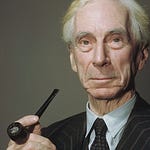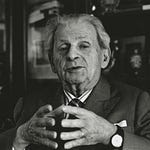We have been sold a blueprint for happiness, a meticulously detailed map to a promised land called “Success.” From childhood, we are told to dream big, work hard, and forge our own path. We consume endless books and podcasts promising to unlock our potential, to reveal the “one secret” to a fulfilled life. But what if reaching the destination only reveals a profound, terrifying emptiness?
This is the unspoken truth at the heart of the self-help industry, a quiet crisis of the soul that French sociologist Alain Ehrenberg diagnosed with chilling precision. He saw beyond the individual narratives of striving and failing, identifying a deeper, structural shift in the very fabric of our society.
In this article, drawing from his seminal work, “The Weariness of the Self,” we explore Ehrenberg’s core argument: that the modern depression epidemic is not a malfunction, but the logical outcome of a culture that has replaced the old rules of prohibition with the crushing, infinite demand to achieve. This isn’t just a personal failing; it’s a societal sickness.
The Invisible Revolution: From “Obey” to “Become”
For centuries, human existence was largely governed by external constraints. Society told us what we could and could not do, defined our roles, and set our boundaries. It was a world of prohibition, of “thou shalt nots.” Our struggles often stemmed from breaking these rules, from transgressing established norms.
But then, something shifted. The individual emerged from the shadow of collective authority, empowered (or perhaps burdened) by unprecedented freedom. The command shifted from “obey” to “become.” We were no longer defined by what we were forbidden to do, but by what we were obligated to achieve, to create, to manifest.
This seismic cultural transformation birthed a new kind of individual: an entrepreneur of their own life. We became the sole architects of our destiny, solely responsible for our own success or failure. In this brave new world, there are no external systems to blame, only personal insufficiency.
The new form of this responsibility is not one of guilt (in the sense of fault for a bad act), but of individual initiative, of success and failure in constructing one’s own existence.
— Alain Ehrenberg
The Crushing Weight of Infinite Possibilities
Imagine being given a blank canvas and told not only to paint a masterpiece, but that your entire worth depends on it, and there are no instructions, only endless options. This is the existential burden of modern life. Alain Ehrenberg argues that this intense pressure to constantly choose, create, and perform our own identity leads to a profound exhaustion.
We are told to “find our passion,” “live our best life,” “manifest our dreams.” These are not gentle suggestions; they are imperatives. The very notion of self-help, while seemingly empowering, often reinforces this immense pressure. It tells us that all solutions lie within us, and if we are struggling, it is because we haven’t tried hard enough, haven’t optimized enough, haven’t “chosen” correctly.
The self becomes a project, constantly under construction, never quite finished. This ceaseless labor of self-creation is the source of the “weariness of the self.”
The Hedonic Treadmill and The Arrival Fallacy
Why, despite achieving so much, do we still feel empty? Ehrenberg’s work sheds light on two insidious psychological traps: the Hedonic Treadmill and the Arrival Fallacy.
The Hedonic Treadmill: We strive, achieve, and briefly experience satisfaction, only for our baseline of happiness to quickly return to its previous level. We are forever chasing a horizon that retreats with every step. The goalposts keep moving.
The Arrival Fallacy: This is the belief that permanent contentment, enduring happiness, and true fulfillment are just one more achievement away. One more promotion, one more milestone, one more self-improvement hack. We believe that if we just “arrive,” the struggle will end.
But the finish line, for many, reveals only more track. This is the sickness of success, a burnout born from the impossible task of being the sole author of your own meaning, a relentless cycle of striving that ultimately leaves us depleted, hollowed out, and profoundly weary.
Depression: A Logical Outcome, Not a Malfunction
In Ehrenberg’s view, the modern depression epidemic isn’t a random surge of individual malfunctions or a mere chemical imbalance. It is a logical outcome, a direct symptom of this culture of infinite demand and individual responsibility. When the burden of self-creation becomes too heavy, and the relentless pressure to perform one’s own identity overwhelms, the spirit breaks.
Depression, in this context, is the inability to respond to the injunction to be autonomous and self-sufficient. It’s the collapse of the entrepreneurial self, no longer able to keep up with the demands of its own making. There’s no external enemy, no clear societal injustice to fight, only the devastating feeling of one’s own inadequacy in a world that demands endless self-mastery.
Depression becomes visible at the moment when the individual loses the capacity to take action, to undertake and organize their own life, when they find themselves unable to respond to the injunctions of autonomy and self-realisation.
— Alain Ehrenberg
The greatest burden of modern freedom is not the fear of making the wrong choice, but the overwhelming, never-ending mandate to constantly choose, create, and validate your own existence.
Unlock deeper insights with a 10% discount on the annual plan.
Support thoughtful analysis and join a growing community of readers committed to understanding the world through philosophy and reason.
A Call for Collective Reflection
Alain Ehrenberg’s “prophecy of the weary self” provides a powerful lens through which to understand the pervasive hollowness so many feel at the finish line. It challenges us to look beyond individual resilience and personal optimization, and instead, confront the systemic pressures that contribute to our collective mental health crisis. His work isn’t about blaming individuals, but about understanding the very air we breathe in a culture of relentless self-creation.
Perhaps by understanding the true nature of this invisible war for our minds, we can begin to question the blueprint for happiness we’ve been sold, and instead, seek paths to meaning that do not demand an impossible, ceaseless performance of the self.











